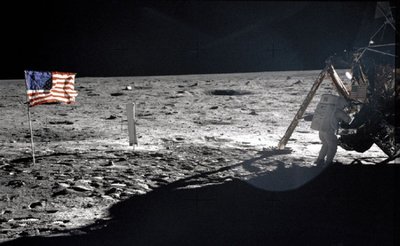Do Now
is a weekly activity for students to engage and respond to current issues using social media tools like Twitter.
If you are a teacher, use the
NewsHour Extra resource package on JFK
and the information below, then encourage your students to tweet in over the next week using the hashtag #DoNowJFK.
If you're a student, read the question and background information, then tweet us your opinion! The best answers will be retweeted by the NewsHour Extra Twitter account.
Question
President Kennedy inspired a generation of scientists with his mission to be the first country to go to the Moon. Does this generation have a "Moon mission", and if so, what does it look like? If not, what should it look like?
Background
Fifty years ago this month, President John F. Kennedy was assassinated by Lee Harvey Oswald while riding in a motorcade through downtown Dallas, Texas. Although his life was cut short, his legacy of supporting civil rights and American technological advancement still resonates today.
Perhaps President Kennedy’s most famous initiative while in office was his decision to fund a program that would make American astronauts the first to land on and explore the moon’s surface. In a famous 1961 speech at Rice University, the president explained his ambitious goal of sending an American to the Moon’s surface before the end of the decade.
“We choose to go to the Moon…we choose to go to the Moon in this decade and do the other things, not because they are easy, but because they are hard, because that goal will serve to organize and measure the best of our energies and skills, because that challenge is one that we are willing to accept, one we are unwilling to postpone, and one which we intend to win, and the others, too.”
View full speech
Skip to 8:00 to watch the essential part of the speech.
At the time, the U.S. was engaged in the “space race” with the Soviet Union (USSR) – a technological race to become the dominant superpower in space exploration. The USSR had already beaten the U.S. twice before by sending both the first object (the satellite Sputnik in 1957) and the first human (cosmonaut Yuri Gagarin in 1961) into space.
The space race and Kennedy's speech inspired a generation of young Americans to pursue careers in engineering and technology, ultimately helping to make the U.S. a leader in these fields today. Homer Hickam, a student in the 1950s and 60s who went on to become a NASA engineer, wrote about the effects of the space race on his life and the lives of others living in mountainous West Virginia in his popular memoir “Rocket Boys”, which was later turned into the film “October Sky”.
View trailer for “October Sky”
Although President Kennedy died year after his speech at Rice, his dream continued to live on, and July 21, 1969 Neil Armstrong became the first human to walk on the Moon’s surface.
Do you think there is a cause or mission today that inspires young people to take on new challenges and learn new skills and technology to better the country and the world? If so, what does it look like? If not, what should it look like?
View more resources on the legacy of President John F. Kennedy
--Compiled by Allison McCartney for NewsHour Extra




